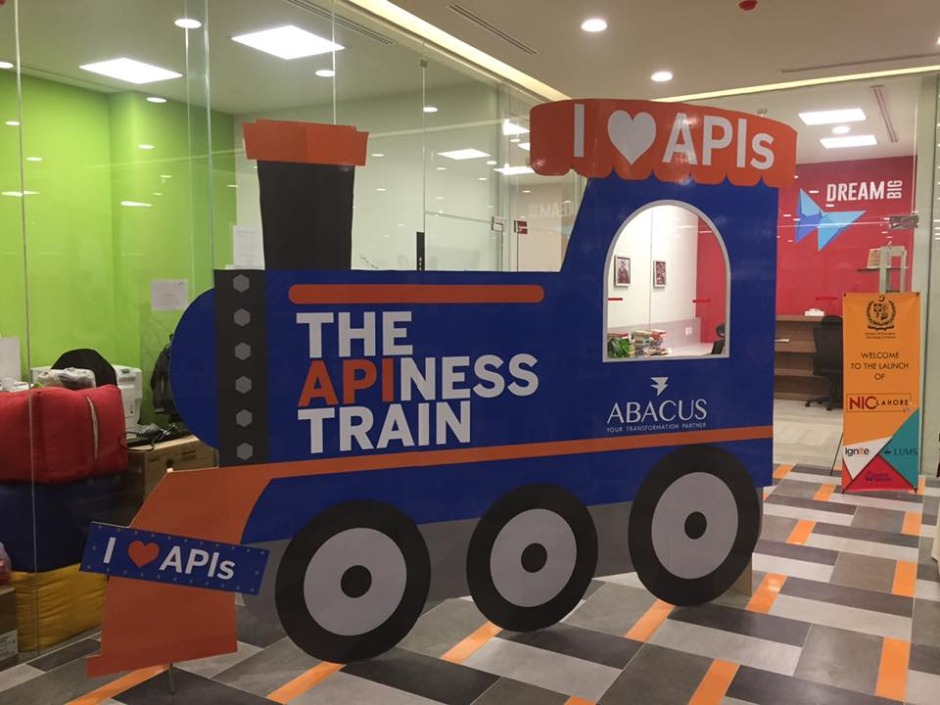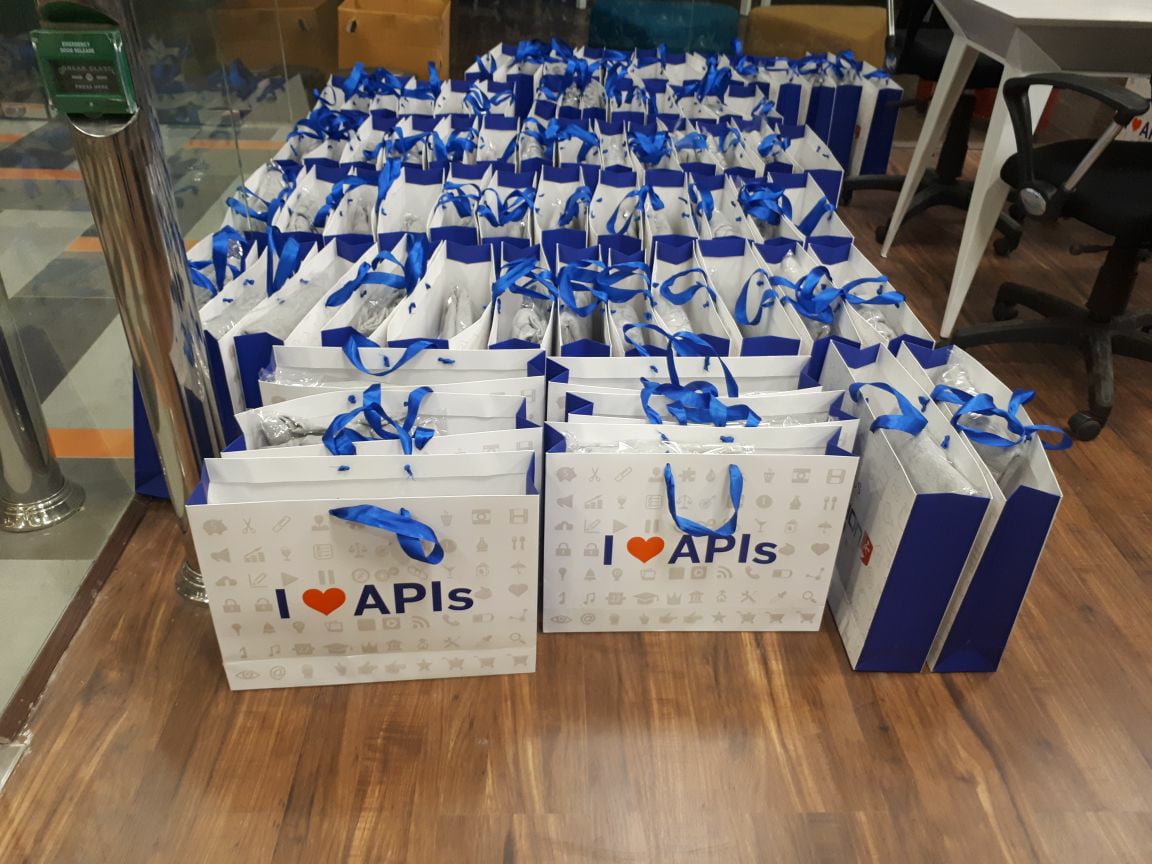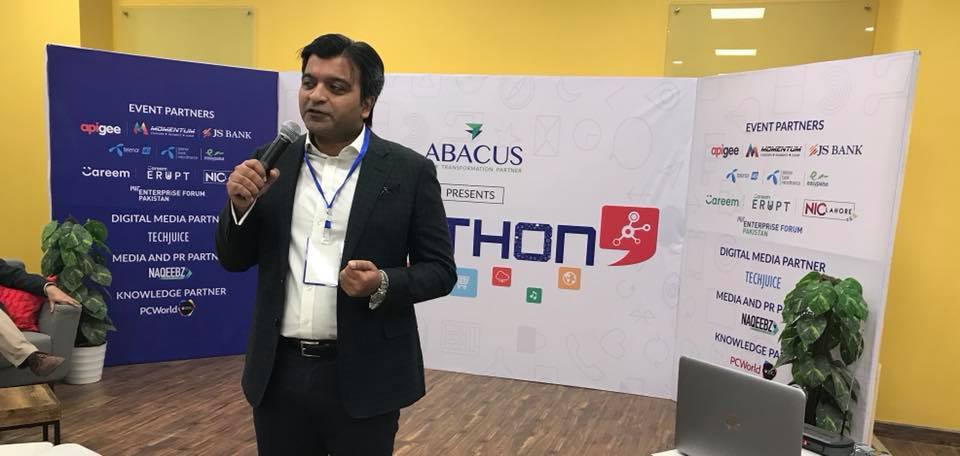APIthon kicked off today at NIC (National Incubation Center), situated in LUMS. The first day was abuzz with the introduction of APIs and discussion about how they impacted the economy in the modern world.
Arrival of participants and hackathon environment
The whole APIthon is being held at the newly constructed NIC Lahore in LUMS. The participants were seated in the smart classroom by the co-working space. The environment and ambiance helped in developing a feeling of a hackathon in everyone present during the APIthon.
Introduction to world of APIs
The big focus of this APIthon is creating awareness about the importance of APIs in the modern economy and their significance in all future technological developments. To give the participants more idea about how APIs work and to provide more details about the APIs which are available for participants to tinker with, 3-hour session was dedicated at the start of the hackathon which included talks from partners of APIthon.
The first keynote speaker was Abbas Ali Khan, Managing Director, Abacus Consulting. He talked about how the idea of APIthon was conceived and why was it important to not reinvent the wheel while developing new applications. He encouraged all the participants to enjoy the next two days and come up with the most brilliant idea that they could. While talking about the digital economy, APIs and their correlation in today’s world, Abbas Ali Khan said:
“Any transaction which leaves a digital footprint is a digital asset. Even if it is not conducted digitally, it is done through cash and someone catches that transaction on the counter, it leaves a digital footprint and it can be classified as a digital asset. Once it becomes a digital asset, it becomes reusable. That’s the essence of APIs — digital assets which are reusable. It can then be fed into big data platforms and it can be used in a number of different ways — ways that I cannot even think about. And that’s where [APIthon participants] come in. To think new ways in which revenue generating activities can be done on these digital assets.”
The second keynote speaker was Khurram Shaikh, Chief Digital Officer, JS Bank. He highlighted the difficulties they went through to get JS Bank to partner with APIthon and to open up their platform for developers. He stressed the importance of financial transactions in every activity being performed all around in the world. Nearly every social activity either starts or ends with a financial transaction. In the center of all these transactions lies a financial institution like JS Bank. So it is pivotal for such institutions to adopt newer technology to propel other companies depending on those financial transactions forward. Talking about the changing dynamics of Pakistan’s technological space, Khurram Shaikh said:
“Facebook and Instagram have grown in a different environment where the private sector and young entrepreneurs work together, but in Pakistan, this does not happen regularly. But I see that this is now changing. It’s not only the corporate sector who is feeling the heat because of competition but our customers who are pushing us to look for new ways because the experience and times are changing.”
Omer Moeen Malik, Head of Digital Payments at Telenor Bank talked about the importance of digitizing the older and antiquated methods of payment and getting things done. He gave examples of different areas in Pakistan which were still working on older technologies which were in dire need of digitization. While talking about lack of banking services for common people in Pakistan, he said:
“There are 220 million people in this country and even after 70 years of independence, only 20 or 25 million people have banking services. That’s the reason why Easypaisa and other such platforms have really come in to serve this country. It’s our observation that people in this country are not averse to using technology, but still, only 1/3rd of the money flowing in Pakistan is running through banking services. Even apps like customers of Uber and Careem are using cash payments in Pakistan. That’s the reason why we are here, to open up our platforms and APIs so that new services can leverage the banking platform that we have built and use it in their services.”
Rapid prototype model
The subsequent speakers focused on adopting a “rapid prototype model” for newcomers in the industry. Instead of polishing an idea and making it into the perfect application, the better thing for new startups is to get their products out in the market and get real feedback from real users.
What’s next for participants?
The participants were provided with a brief introduction of available APIs and they were introduced to mentors that are available at APIthon to help them out during the whole hackathon. There was also a jamming session arranged for participants with three talented young singers. Participants have until 12 PM on 14th January to integrate the APIs in their applications. Results will be announced on 5 pm after the judges have had their time to deliberate and judge the submissions by participants.














